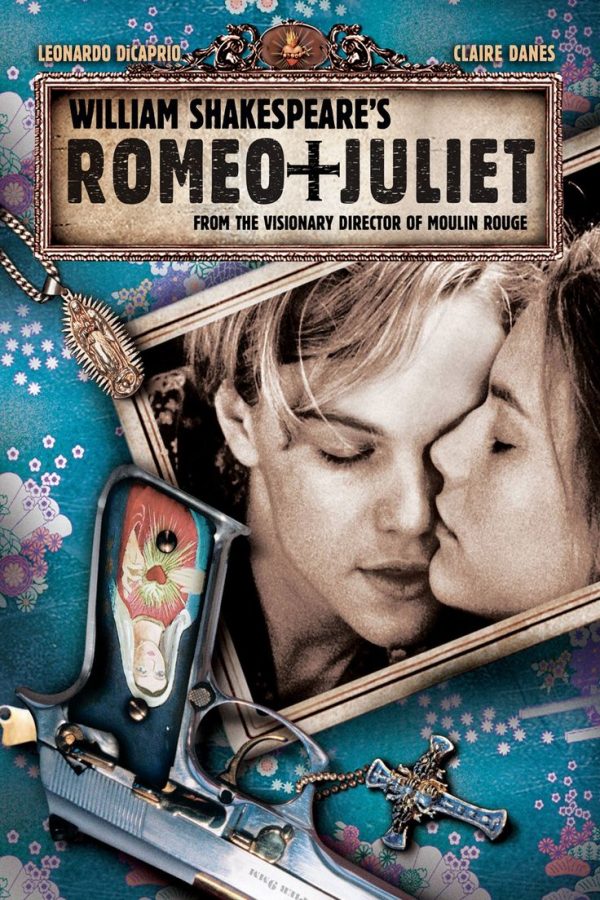It has been 400 years since the death of the most beloved playwright the English language has ever known. Few individuals have influenced their language and culture as much as Shakespeare and, though centuries have passed, his timeless tales continue to be performed on stages across the planet.
But Shakespeare’s scripts were not limited to the stage – though the medium would not be invented for hundreds of years after he lived, his plays have been adapted to the silver screen with tremendous success. Indeed, with the skill of his writing and notoriously sparse stage direction, Shakespeare’s plays proved easier than most to adapt in many imaginative and exciting ways.
In celebration of the greatest poet, playwright and screenwriter the English language has ever known, here are the top five Shakespeare adaptations for film.
5) “Much Ado About Nothing” (2012)
Joss Whedon’s take on the Bard came a bit out of left field – shot in a ludicrously short amount of time (filmed over the course of 12 days) while Whedon was on vacation from post- production of “The Avengers”, the fact that “Much Ado” comes out as one of the finest examples of Shakespeare on film is nothing short of a miracle. The black and white color palette may not have been the greatest decision, but this is one of the few films that really understands how to deliver Shakespeare’s lines without sounding stilted or awkward – something that films higher up the list struggle with.
4) “Romeo + Juliet” (1996)
Possibly the most famous reimagining of one of Shakespeare’s most famous plays, “Romeo + Juliet” took the classic tale of forbidden love and brought it into the modern era with mafia gangs. With the swords replaced by guns and Verona replaced by Verona Beach, this is a film that may struggle the most with the classic Shakespearian language. Although everything seems new and modern, even the swagger that Leonardo DiCaprio brings to Romeo cannot make the words he is saying seem any less anachronistic and ridiculous. However, the excellent performances, wonderful setting and downright perfect direction manage to make that the most minor of concerns, and the gangland setting proves a winning one for all.
3) “Henry V” (1944)
Shakespeare didn’t have to be brought into the modern age for it to work in timeless brilliance, though. Sometimes, the original setting was more than sufficient. It was a bit of a tossup between this one and the more realistic 1989 version, but in the end Laurence Olivier won out with his role as the definitive Henry V. This iconic film was made in 1944 – World War II was raging across Europe, and the film bears the hallmarks of English patriotism and plenty of allegories for the war effort. However, the film still remains one of the finest efforts of any Shakespeare adaptation on the big screen, and Olivier proves time and again why his name and Shakespeare’s will be forever entwined. Few actors could give a more iconic performance of an English king than Olivier.
2) “Richard III” (1995)
Few films are as well put together as “Richard III”. The greatest adaptation of Shakespeare for the modern age portrays his classic tale of intrigue, betrayal, and villainy in a pseudo-fascist England, with the titular king as a sort of English Hitler. Ian McKellen gives the performance of a lifetime as he captures the subtleties of one of Shakespeare’s most complex villains. Every detail of this film is close to perfection, especially the famous “Winter of Discontent” speech. With sharp cinematography, impeccable wit and some of the finest performances in film history, it would take a true giant of Cinema to keep “Richard III” from being at the top of this list.
“Othello” (1952)
Few would accuse Orson Welles of being anything less than the greatest filmmaker of his age, and perhaps of all time. With him at the helm of a film adaptation of one of Shakespeare’s greatest plays, “Othello” was going to be a great film no matter what. However, Wells proved that “Citizen Kane” was not the only masterpiece he had in him, as he constructed a near perfect rendition of “The Moor of Venice.” Naturally, for a film to be truly great, it cannot be a one-person job, and Welles had a lot of help – an excellent cast including Michel MacLiammir as the devilish Iago backed him up to the hilt, turning in memorable performances all around. Although in the present this may be a bit uncomfortable to watch – though it is very toned down, Welles is clearly wearing blackface for his performance – in my opinion, the unequalled majesty of the film far outweighs the backward thinking that went into some casting choices and costume design.





















































































































